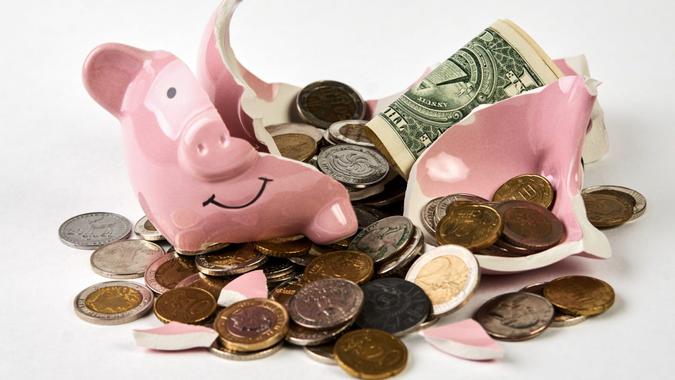
Traditionally, retirement begins once you reach your mid to late 60s. That said, it’s not impossible to achieve a retirement earlier than that — far earlier, in fact. Through dedication, planning and sharp money management, you can ditch the rat race and live the high life much sooner than your later years.
Find Out: How Long $2 Million in Retirement Will Last in Every State
Learn This: Here's the Minimum Salary Required To Be Considered Upper Class in 2025
Do you think you’ve got the smarts and financial know-how to retire early? Be sure to take this GOBankingRates quiz and find out.

How Much To Save
If you expect to retire before your 60s, you’ll likely need to set a high target savings rate for yourself, putting back more than just 5% to 10% of your annual income if you’d like to get ahead. How much do early retirees set aside to retire early?
A) 10-30%
B) 30-50%
C) 50-70%
Also See: 6 Cash-Flow Mistakes Boomers Are Making With Their Retirement Savings
Be Smart: 6 Key Signs You’ll Run Out of Retirement Funds Too Early

The Answer: How Much To Save
Did you opt for (B) 30-50%? While it may sound extreme, SmartAsset notes that many early retirees put back nearly half of their annual income to ensure they have enough wealth for an extended retirement.
Huge Mistake: 4 Retirement Expenses Boomers Didn’t Plan for — but Should Have

Tax-Advantaged Retirement Accounts
In order to build out your early retirement savings, you can maximize your contributions to certain tax-advantaged retirement accounts. Specifically, which kind of retirement accounts should you invest in to retire early?
A) Catch-up contributions
B) IRA contributions
C) Roth conversion accounts
D) Traditional 401(k) contributions
E) All of the above

The Answer: Retirement Accounts
Hopefully, you went with (E) all of the above. As Mutual of Omaha has noted, maximizing your contributions to each and every one of these types of retirement accounts (all of which are tax-advantaged), gives your money tax-free growth on your journey to early retirement.

How Big Should Your Nest Egg Be?
To retire early, you definitely need to plan on a specific amount for your nest egg — but how much is enough?
A) 10 times your estimated yearly expenses
B) 25 times your estimated yearly expenses
C) 50 times your estimated yearly expenses

Answer: Nest Egg
If you answered (B) 25 times your estimated yearly expenses, then you’re in good shape. As GOBankingRates has previously reported, your nest egg should be determined by “the Rule of 25.” The Rule of 25 means that you should have 25 times your yearly expenses put back before you retire. Let’s say your yearly expenses are $40,000. Having that amount 25 times over is $1 million — meaning that’s how much you’d need to cover your yearly expenses for at least 25 years.
More From GOBankingRates
This article originally appeared on GOBankingRates.com: Are You Smart Enough To Retire Early? Take This Money Quiz To Find Out







